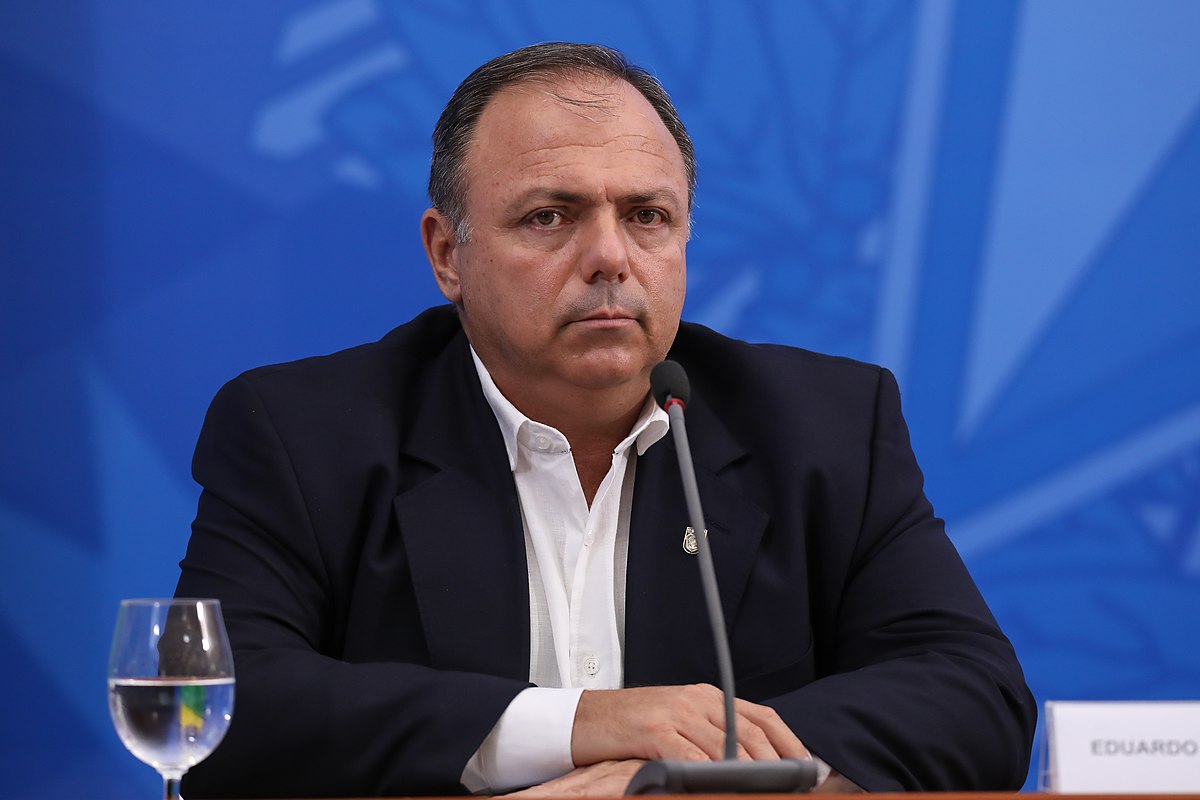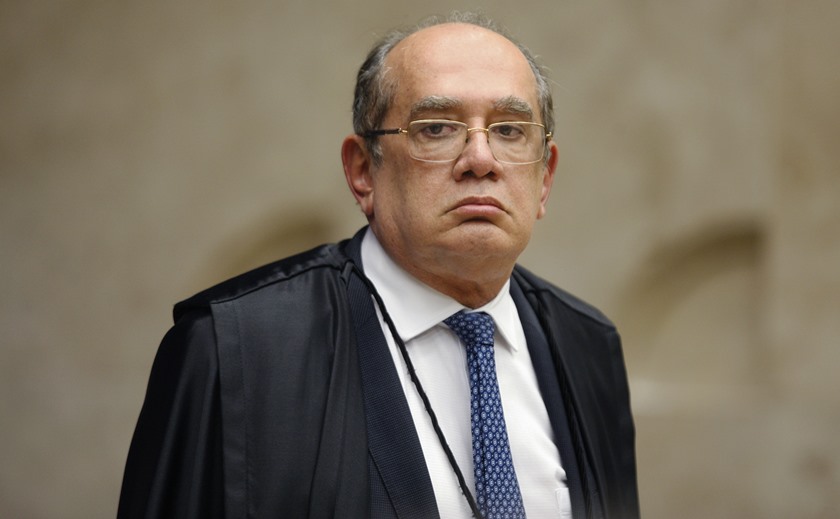RIO DE JANEIRO, BRAZIL – Backstage in the Ministry of Health, the atmosphere among officials is tense. After two cabinet Ministers left the government amid the Coronavirus crisis due to disagreements with President Bolsonaro, military officers multiplied into key positions in the portfolio, most of them appointed by the interim Minister, General Eduardo Pazuello.

The body, under Pazuello’s interim administration for 59 days, is immersed in a political web and has lost its leading role in the serious health crisis. Officials say they are afraid to wear masks to protect themselves from the virus at the Esplanade, for fear that the action will be perceived as “ideological”. They also report that there is much pressure for deadlines and deliveries at meetings – in which the military always evoke the name of the interim Minister – and ever less time for technical discussions that guide national health policies.
According to them, all this has led to a rupture in the portfolio’s agenda, responsible for coordinating the complex machinery of the national Unified Health System (SUS), the actions of which are executed at ground level by states and municipalities. And it has created friction even with the Supreme Court, after Justice Gilmar Mendes said the army is “associating itself with genocide”.
“We have been experiencing a very difficult situation for months. Inside, our colleagues are very distressed. Many technicians are still working in-person, but they’re even afraid to wear masks, as if it were an ideological position. It’s as if it’s become a communist thing. Whoever is with the Government does not wear a mask,” says anonymously an official who has worked for 15 years in the portfolio.
The concern is that such actions will lead to dismissals, since most of the staff in the Ministry of Health are not civil servants, but outsourced by other institutions, such as the PAHO (the W.H.O. Panamerican branch). In early June, technicians were fired for producing a document that included a safety guarantee for women who have abortions in cases allowed by Brazilian legislation during the pandemic. “This became an ideological agenda that led to persecution and made people from other areas afraid to speak up,” said the official.
The strong presence of military officers in the body – which began with Nelson Teich’s brief management and was consolidated with Pazuello’s – is also reflected in internal tension. At least 25 military officers were appointed during the pandemic, many with no experience in the health field. In the internal meetings, military officers always mention the name of the interim Minister Pazuello when guiding the teams, something that did not occur in the previous administrations.
Marked by hierarchy and discipline, they demand deadlines and deliveries. But technical discussions have lost relevance, even on other health matters that are not directly related to the pandemic and cannot be paralyzed during the crisis, such as actions to control diseases like diabetes and hypertension, campaigns against dengue, and policies for women’s health.
“These agendas are being neglected. The internal situation today is very negative. The agendas are very restricted and anti-technical. The military officers are not familiar with the field and do not allow much room for technicians to position themselves. Many are gradually ceasing to express an opinion because it is very constraining. I’m one of them,” says a worker who chose to remain anonymous. He warns that the impact of political decisions is not immediately reflected in the health indicators, but he says the consequences could be seen in future months and years.
It’s a fact: Brazil has not had a Minister of Health for 59 days; during this time, General Pazuello has been acting as interim Minister. Bolsonaro already said he would not remain in the post “forever,” but warned that there is no deadline to appoint someone else.
Inside the cabinet portfolio, officials believe that the temporary position has little effect on the size of the space that the military officer is filling. Pazuello’s influence on internal decisions is viewed as stronger than that of ex-Minister Teich, who used to expedite more from his office and did not interfere as much in the work being carried out. “Pazuello is in command. He is not absent,” says the servant.
The problem lies in the politicization that has coalesced in the Health ministry in recent months. While the ideological and military wings filled positions in other Bolsonaro Ministries such as Education, and Family, Women, and Human Rights, Health managed to keep relatively distant from these issues in the first year of the Bolsonaro administration.

With the cabinet changes during the pandemic, the political crisis impacted the portfolio’s agenda, which traditionally holds an important technical position that provided it with support both from society and from the medical community.
One of Pazuello’s first actions was to release a treatment protocol for Covid-19 that includes hodroxychloroquine, even though there is still no scientific evidence of the drug’s efficacy against the disease. The drug has been advocated by Bolsonaro since the start of the crisis.
“In the campaigns, whenever it is said that the Ministry of Health advises something, there is significant regard among society. With the pandemic, we are now witnessing a certain exhaustion of him with less technical positions,” the worker says.
The top-level health body in the country has been losing its leading role during the crisis. In theory, its role would be to define the rules, regulate and finance policies to tackle the virus. It would be up to states and municipalities to execute the national strategy at the front lines. But the President’s erratic behavior – he opposed the social isolation measures required to halt the spread of the coronavirus – led the Supreme Court to allow mayors and governors to make decisions on this matter.
The Federal Government has used the decision as an argument to avoid assuming its rightful role as coordinator of the management of the epidemic. It has essentially become a recipient of the demand placed by local officials, who often ask for ventilators, drugs, and tests to treat infected patients. There were times in the pandemic when it was impossible to establish a dialogue with the Ministry of Health.
“Minister Pazuello has been striving for a closer dialogue with the secretaries,” praised the president of the National Council of State Health Secretaries, Carlos Lula. But according to experts, Brazil is still struggling with a disarray in its actions to contain the epidemic.
“We are not looking at the whole national territory, only territorial sections. It’s as if we’re not experiencing a relationship between the federated states,” says Dario Frederico Pasche, a public health nurse and member of the Policy, Planning and Management Committee of the Brazilian Association of Collective Health (ABRASCO). Pasche, who worked for ten years in the Ministry of Health, says there is a deliberate deficiency in the portfolio regarding the pandemic’s actions.
He considers that maintaining the portfolio without a permanent head, under the interim command of a military officer unfamiliar with the field, is a strategy to follow the misguided line advocated by Bolsonaro, who has criticized social isolation and tried to escape the responsibility of downplaying the deaths by the coronavirus, while the country currently counts over 70,000 fatalities.
“This temporary arrangement [of Pazuello] is a political intervention. It’s an alibi for the Ministry of Health not to function. And by not functioning, it ultimately delegates to other agencies the coordination of activities that don’t fall under their remit. There is a lack of political intelligence and coordination [in the actions to fight the pandemic] that falls to the Ministry,” Pasche says.
Without clear guidelines, municipalities have implemented their own protocol for the treatment of Covid-19, including de-wormers and other drugs that have not been proven effective. “We have military officers playing necropolitics. In almost two months, a national strategy to fight the virus has not been built,” he adds.
The lack of command was criticized last weekend by Federal Supreme Court (STF) Justice Gilmar Mendes. In a live broadcast organized by Isto É magazine, he stated that the void “is unacceptable”. “We can no longer tolerate this situation in the Ministry of Health. One might even say that the strategy is to strip the federal government of its role, assigning responsibility to states and municipalities. If that is the intention, something must be done,” he said.
“This is terrible for the image of the Armed Forces. It must be said very clearly: the Army is associating itself with this genocide; it is irrational”, he added. The statement caused indignation in the Ministry of Defense. Minister Fernando Azevedo e Silva said he will file a complaint against Mendes with the Office of the Prosecutor General (PGR). “Such comments, entirely detached from the facts, have caused indignation. This is a serious accusation, as well as unfounded, irresponsible, and above all frivolous. The free attack on state institutions does not strengthen democracy,” he said in a note signed jointly with the three commanders of the Armed Forces.
Source: El País

